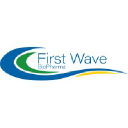Companies
Discover all trending biotech companies
Discover all trending biotech companies

Company Research Platform
Global Employees
15
R&D Investment
5200000
This segment focuses on the development of FW-UP, a niclosamide-based therapy, for the treatment of ulcerative proctitis and ulcerative proctosigmoiditis. Research and development activities include Phase 2 clinical trials to evaluate the safety and efficacy of FW-UP in patients with these conditions. The technology utilized is the oral small molecule niclosamide, known for its anti-inflammatory properties. The therapeutic area is gastroenterology, specifically targeting inflammatory bowel disease. The patient impact is aimed at reducing inflammation, promoting healing, and improving the quality of life for patients suffering from these debilitating conditions. Market positioning involves competing with existing therapies while offering a potentially novel mechanism of action. Future opportunities include expanding the use of niclosamide in other GI indications. Regulatory and clinical aspects involve FDA approval and adherence to clinical trial protocols. Partnerships may include collaborations with gastroenterology clinics and patient advocacy groups.
This segment is dedicated to the development of FW-ICI-AC, a niclosamide-based therapy, for Grade 1 and Grade 2 Immune Checkpoint Inhibitor-associated colitis and diarrhea in advanced oncology patients. Research and development activities include clinical trials to assess the efficacy and safety of FW-ICI-AC in this specific patient population. The technology employed is the oral small molecule niclosamide, known for its anti-inflammatory and potential anti-viral properties. The therapeutic area is oncology, specifically addressing the side effects of immune checkpoint inhibitors. The patient impact is aimed at alleviating the debilitating side effects of cancer treatment, improving patient outcomes, and allowing patients to continue their cancer therapy. Market positioning involves addressing an unmet medical need in oncology. Future opportunities include expanding the use of niclosamide in other oncology-related GI complications. Regulatory and clinical aspects involve FDA approval and collaboration with oncology centers. Partnerships may include collaborations with oncology research institutions and pharmaceutical companies.
This segment focuses on the development of FW-EPI (adrulipase), a recombinant lipase enzyme, for the treatment of exocrine pancreatic insufficiency (EPI) in patients with cystic fibrosis and chronic pancreatitis. Research and development activities include clinical trials to evaluate the efficacy and safety of adrulipase in enabling the digestion of fats and other nutrients. The technology utilized is the biologic adrulipase, designed to replace or supplement the lipase enzyme. The therapeutic area is gastroenterology, specifically targeting pancreatic disorders. The patient impact is aimed at improving nutrient absorption, reducing malabsorption symptoms, and improving the quality of life for patients with EPI. Market positioning involves competing with existing enzyme replacement therapies while potentially offering improved efficacy or tolerability. Future opportunities include expanding the use of adrulipase in other conditions involving malabsorption. Regulatory and clinical aspects involve FDA approval and adherence to clinical trial protocols. Partnerships may include collaborations with cystic fibrosis and pancreatitis patient advocacy groups.